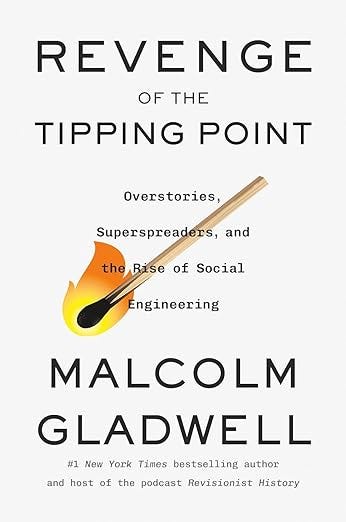“History is not written by the loudest voices, but by the quiet, consistent pressures that turn whispers into roars.”
Revenge of the Tipping Point is a gripping exploration of how small actions can trigger massive societal shifts. Building on the concepts popularized by Malcolm Gladwell in The Tipping Point, this book takes a darker, thrilling turn, examining how seemingly innocuous decisions can spiral into unexpected chaos.
The book dives into the dynamics of power, influence, and collective behavior, focusing on how individuals or small groups can ignite revolutions, disrupt industries, or even destabilize entire nations.
Through engaging narratives and real-life case studies, Malcolm Gladwell showcases how sudden, explosive change often has roots in incremental developments that go unnoticed until it’s too late. Revenge of the Tipping Point blends psychological insight, sociology, and historical analysis to unravel the mechanics of societal tipping points.
It’s a wake-up call about the fragility of balance in our interconnected world.
7 atomic ideas from the book, Revenge of the Tipping Point
The Power of Overstories Gladwell introduces the concept of "overstories" - overarching narratives that shape behavior within a community or society. These stories can significantly influence how people think and act, often without them being consciously aware of it.
Small-Area Variation The book emphasizes the importance of local context in shaping behavior. Similar communities can have vastly different approaches to various issues, highlighting the need to consider local factors when studying social phenomena.
The Law of the Few Gladwell reinforces the idea that a small number of people can have a disproportionate impact on social phenomena. This concept underscores the importance of identifying and understanding key influencers in any social epidemic.
The Magic Third The book introduces the concept of the "Magic Third," a tipping point in group dynamics where minority representation reaches a critical mass (around one-third) and leads to significant changes in behavior and outcomes.
Hidden Social Engineering Gladwell explores how institutions may be quietly manipulating group proportions to maintain certain social structures. He suggests that understanding these hidden practices is crucial for addressing systemic inequalities.
The Role of Media in Shaping Attitudes The book examines how media, particularly television, can play a crucial role in shaping public attitudes and normalizing previously marginalized groups or ideas.
The Unpredictability of Social Change Gladwell highlights how social change can sometimes occur much more rapidly than expected, challenging assumptions about the pace of attitudinal shifts in society. This unpredictability underscores the complex nature of social dynamics and the potential for sudden tipping points.











